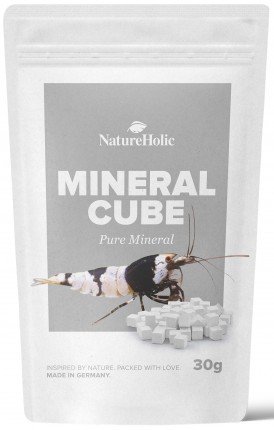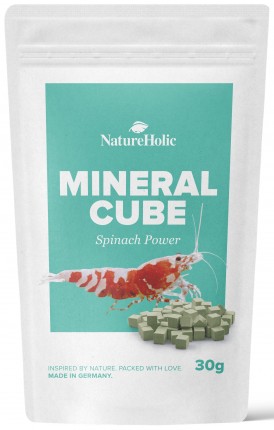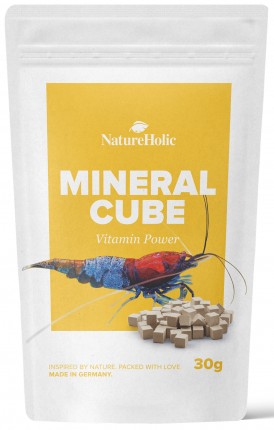Minerals and invertebrates. A technical article from Garnelio
Without minerals no life ... and yet, unfortunately, there is still a lot of confusion about these so important substances! That's why we want to take a closer look at them today.
What are "minerals" actually?
A mineral is a chemical element or a chemical compound on earth or on a celestial body, which was formed by geological processes. If the same substance is produced artificially, it is not called a mineral, but a synthetic equivalent. Substances produced by plants or animals, such as shells, are also not considered minerals because they lack the geological component. Fossilized mussel shells are then again another story. For us, therefore, it is not the minerals that are of primary interest, but the minerals - often mistakenly also referred to as minerals or minerals.
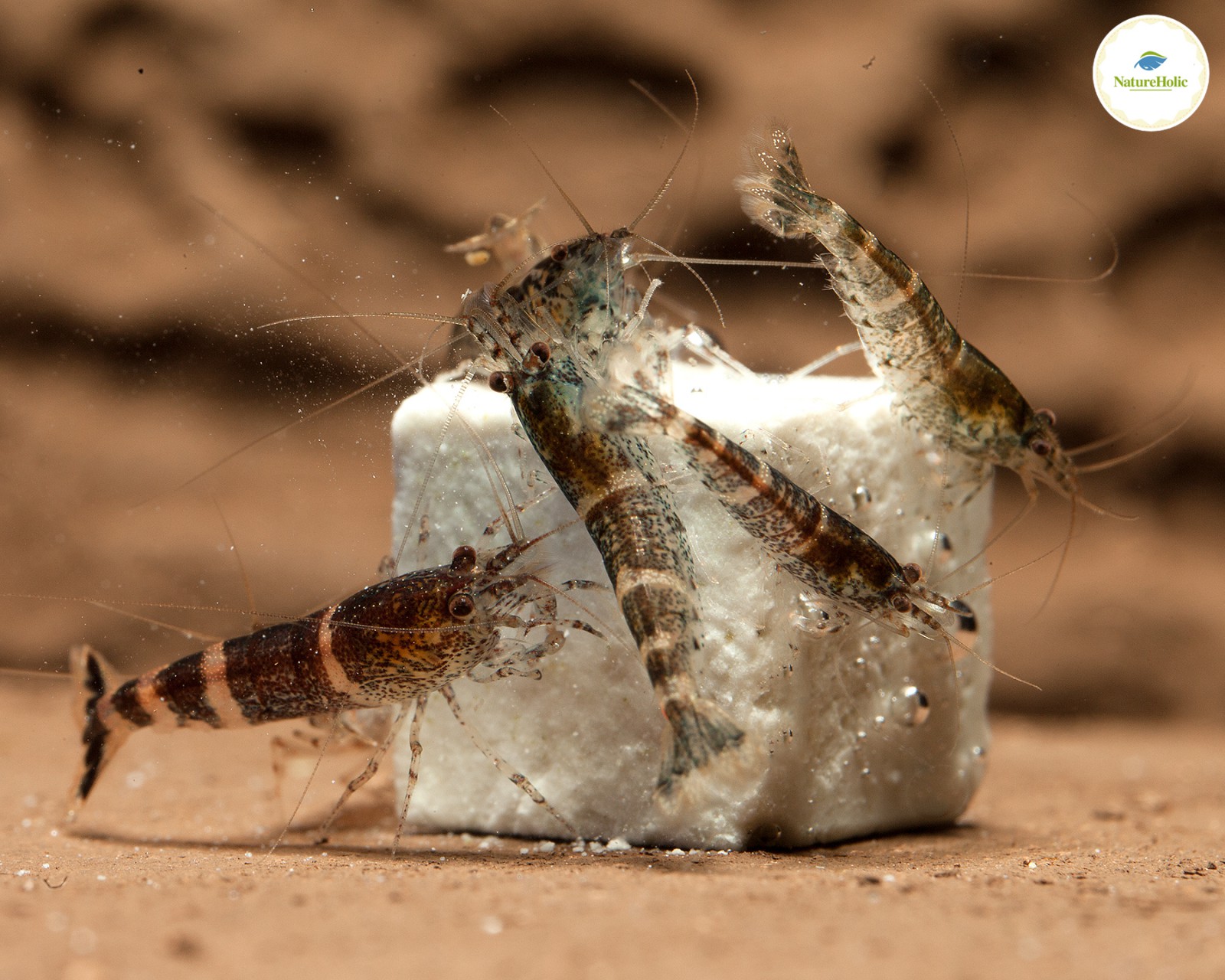 With the innovative NatureHolic MineralCubes "Spinach Power" & "Vitamine Power" we offer a two-in-one solution for the mineral supply and healthy continuous feeding for invertebrates in freshwater: crayfish, shrimps, snails and crabs.
With the innovative NatureHolic MineralCubes "Spinach Power" & "Vitamine Power" we offer a two-in-one solution for the mineral supply and healthy continuous feeding for invertebrates in freshwater: crayfish, shrimps, snails and crabs.
Macroelements and trace elements
There are two types of minerals: bulk or macro elements and micro or trace elements. Macroelements are required by living organisms in larger quantities. In vertebrates and higher invertebrates, for example, these include calcium, magnesium, sodium, potassium, phosphorus and sulfur. Trace elements such as cobalt, copper, selenium and many others are only needed in small amounts, and for some of these substances it is also not at all clear whether they are actually needed or merely present as impurities in organisms.
Functions of minerals
Minerals perform many extremely important tasks in our bodies. They join together with proteins, fatty acids and vitamins. These substances complement and serve each other - one is better processed when the other is present. Many minerals are indispensable for the organism, and the substances are also not interchangeable with each other - for example, you cannot compensate for a calcium deficiency by taking more magnesium. The tasks of the individual building blocks are simply too different!
If you provide the organism with the necessary building blocks, it will do the rest of the work by itself. Minerals and trace elements have an enormously important role in the health of all living things and in a functioning metabolism.
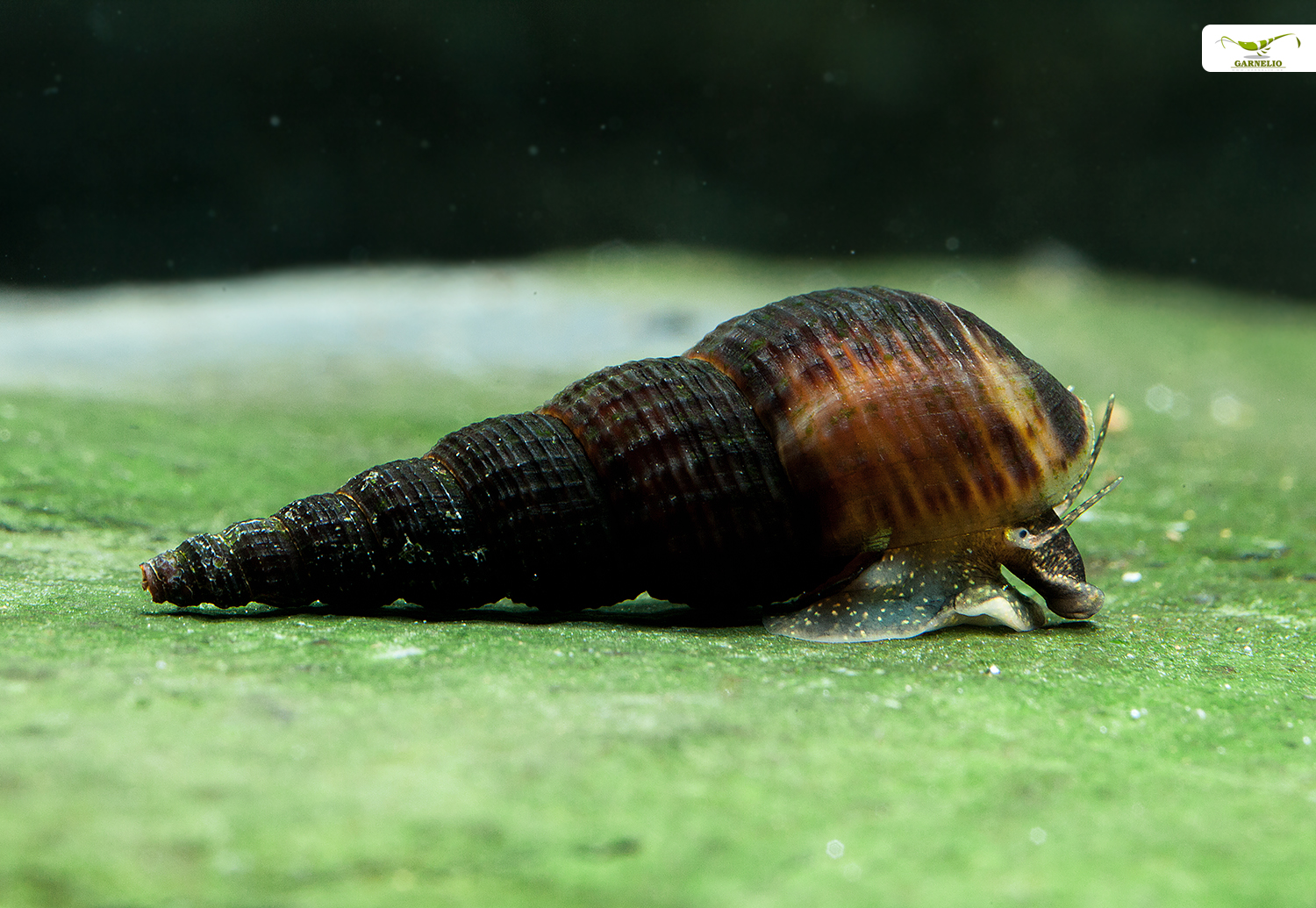
What exactly do minerals do?
Minerals do nothing less than keep life itself going: among other things, they play an important role in water balance, regulate the acid-base balance and keep the metabolism going. Minerals ensure that nerves and muscles function and stabilize the cardiovascular system. But not only that! Minerals help with digestion, they serve to break down nutrients, and at the same time they allow nutrients to be transported to the cells. But minerals are also at work in cell walls, where they control the electrical charge by which our cells communicate with each other. Thanks to minerals, nutrients are also transported into the cells and waste products are transported out of the cells, and worn-out cells are constantly renewed with the help of minerals.
Mineral requirements of invertebrates
Crustaceans absorb minerals mainly through food, snails can also obtain considerable amounts of minerals from the surrounding water through their mantle tissue.
- in crustaceans
Crustaceans have a high mineral requirement, as the crustacean shell consists largely of calcium and magnesium. Without an adequate supply of minerals, a new undercarapace cannot be formed for the following molt. Many molting problems stem from a deficit of available minerals. Minerals are therefore indeed essential for crustaceans to survive! It is not without reason that crustaceans accumulate mineral reserves in the form of stomach stones. Balanced minerals must therefore be provided for the welfare of the animals.
Especially in the case of molting problems, it has been clearly shown that mineral addition significantly optimizes the molting process. The offspring of shrimps, crayfish, dwarf crabs and crabs also grow up better when deficiency symptoms no longer occur. These usually make themselves felt through unexplained moulting problems, diseases as well as a lack of reproductive readiness. The experience of top breeders in Asia and Europe confirms this.
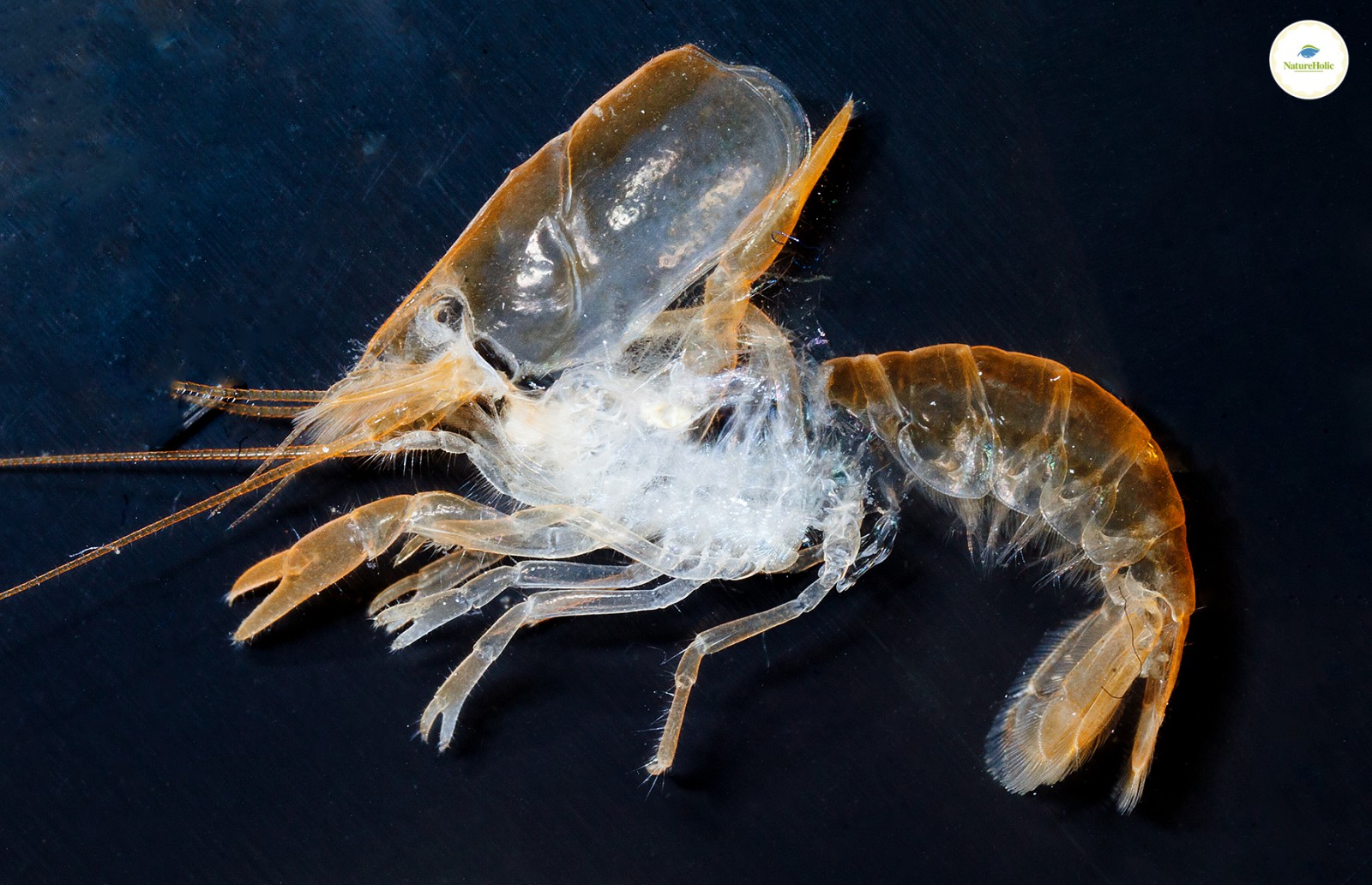 Leave exuviae in the tank, they are a valuable mineral supplement.
Leave exuviae in the tank, they are a valuable mineral supplement.
- for molluscs
Minerals also play a literally fundamental role in molluscs. Snail shells and mussel shells consist almost exclusively of calcium carbonate. Although the animals are capable of extracting this basic substance from the water, the amount of dissolved minerals in the water is often insufficient to ensure a stable shell structure and the associated growth. Almost all snails from German breeding have significant shell damage. Snails that are specifically supplied with minerals grow about 200% faster than snails without this extra supply. But they do not only grow faster. Overall, these animals are much better off because they do not have unsightly shell damage.
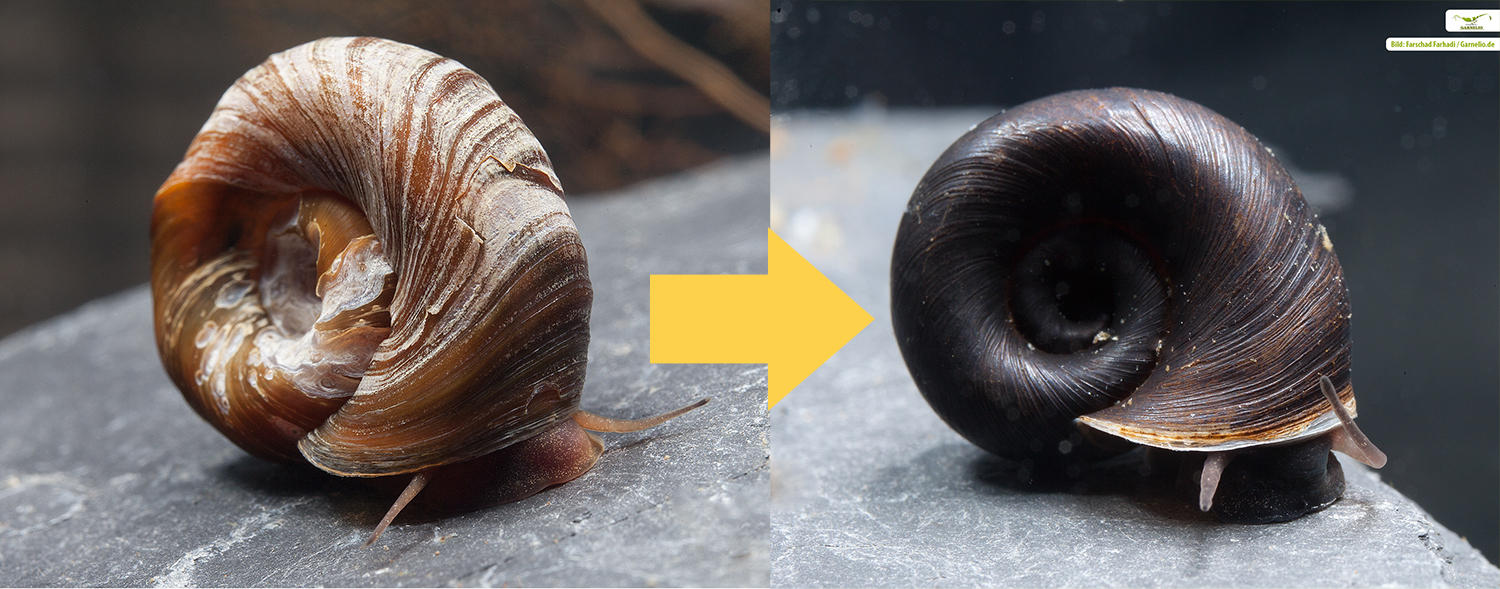 Snails canpreventshell damage when using"MineralCubes" or - if damage is already present - repair smaller holes or cracks from the inside.
Snails canpreventshell damage when using"MineralCubes" or - if damage is already present - repair smaller holes or cracks from the inside.
- on the microflora and microfauna
The microfauna and microflora, especially in the biofilms and filter, also benefit from minerals. Microbes that break down pollutants work much more efficiently and better with a balanced mineral supply. As a result, filter performance is significantly increased and aquariums run much more stably. In addition, a healthy bacterial fauna is a powerful weapon against the proliferation of harmful germs - a colonization with "good" bacteria therefore also effectively prevents diseases.
Mineral supplements in the aquarium
In recent years, various experiments with mineral supplements for invertebrates, especially shrimp, have been underway. Experienced shrimp keepers are familiar with various mineral powders (Mineralpowder) from Japan. These mineral powders usually consist of calcium carbonate and/or the layered silicates bentonite and montmorillonite, respectively. They are certainly not bad, but they are also not the optimum. One must give these preparations daily with a measuring spoon into the aquaria. Due to the powder form, unfortunately a lot of material disappears unused in the substrate. In addition, the minerals from phyllosilicates are not easily absorbed in the digestive tract of the invertebrates.
It is more promising to use minerals in the form of mineral cubes. Here nothing can seep into the substrate, the minerals are absorbed exactly in the amount the animals need them. Thanks to the composition, your shrimps, crayfish, crabs and snails have a reliable source of minerals and trace elements, where they always get what they need. The Natureholic products are produced "Inhouse" directly in our plant. We have been using the MineralCubes in our facility for at least 12 months now and are celebrating great successes, hardly any losses due to moulting problems, hardly any shell damage to aquarium snails and a significantly better reproduction rate, especially among the snails!
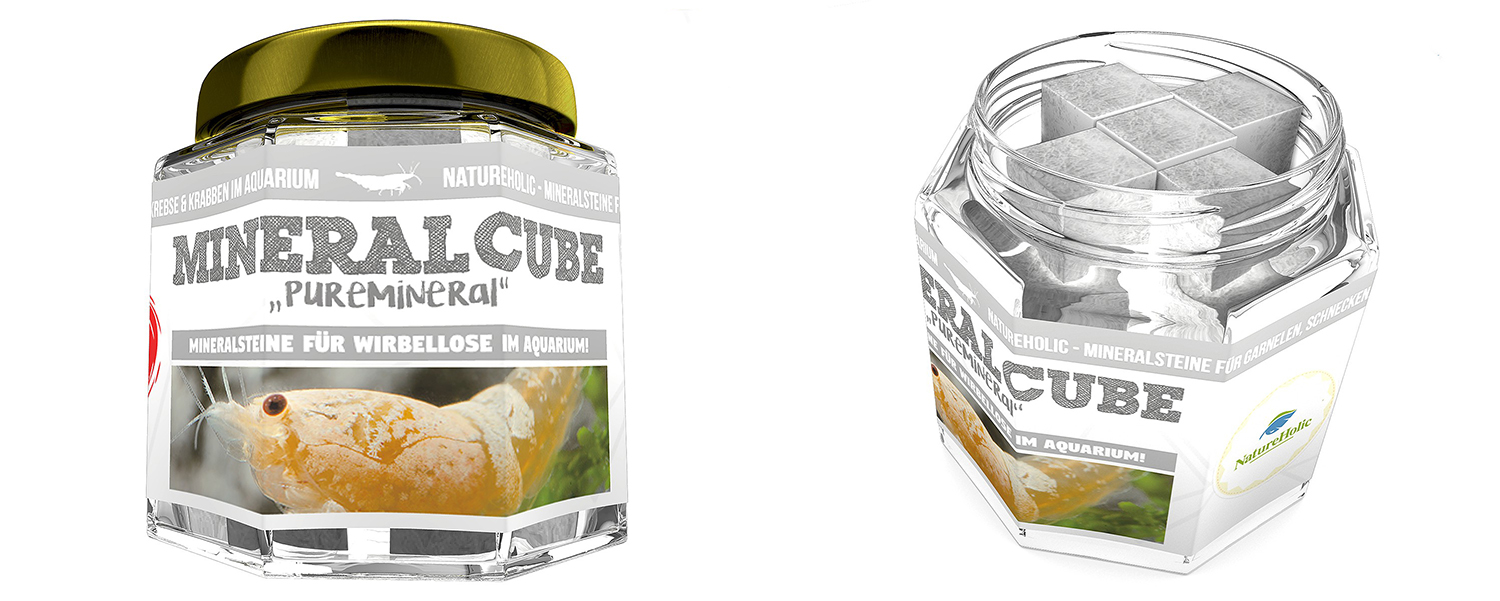 With the newly developed MineralCubes "Pure Mineral" you can easily and comfortably supply your aquarium with minerals. The application is very uncomplicated, the water is not polluted. The cubes gradually release the minerals into the water and thus ensure the supply of the aquarium inhabitants. Minerals are just as important for the unproblematic molting of crustaceans as they are for the shell structure of snails. Even the bacteria in the aquarium that break down pollutants depend on minerals for their work.
With the newly developed MineralCubes "Pure Mineral" you can easily and comfortably supply your aquarium with minerals. The application is very uncomplicated, the water is not polluted. The cubes gradually release the minerals into the water and thus ensure the supply of the aquarium inhabitants. Minerals are just as important for the unproblematic molting of crustaceans as they are for the shell structure of snails. Even the bacteria in the aquarium that break down pollutants depend on minerals for their work.
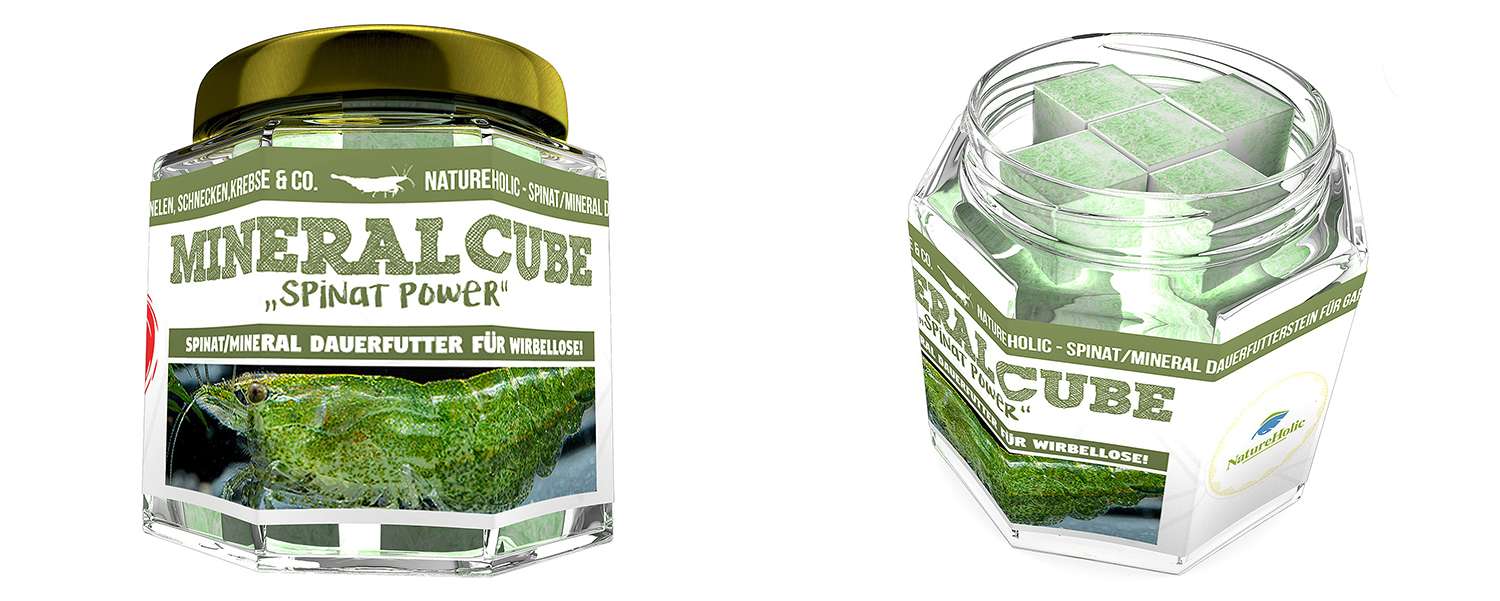 Even Popeye knew how good spinach is! With the new mineral cubes you can easily and comfortably provide your invertebrates with valuable spinach with all its beneficial ingredients and vital minerals. The cubes are also ideal as vacation food or to bridge a few days of absence. Their composition ensures that the water is polluted as little as possible. Thanks to the MineralCubes "Spinach Power" your animals will always find the food and minerals they so need.
Even Popeye knew how good spinach is! With the new mineral cubes you can easily and comfortably provide your invertebrates with valuable spinach with all its beneficial ingredients and vital minerals. The cubes are also ideal as vacation food or to bridge a few days of absence. Their composition ensures that the water is polluted as little as possible. Thanks to the MineralCubes "Spinach Power" your animals will always find the food and minerals they so need.
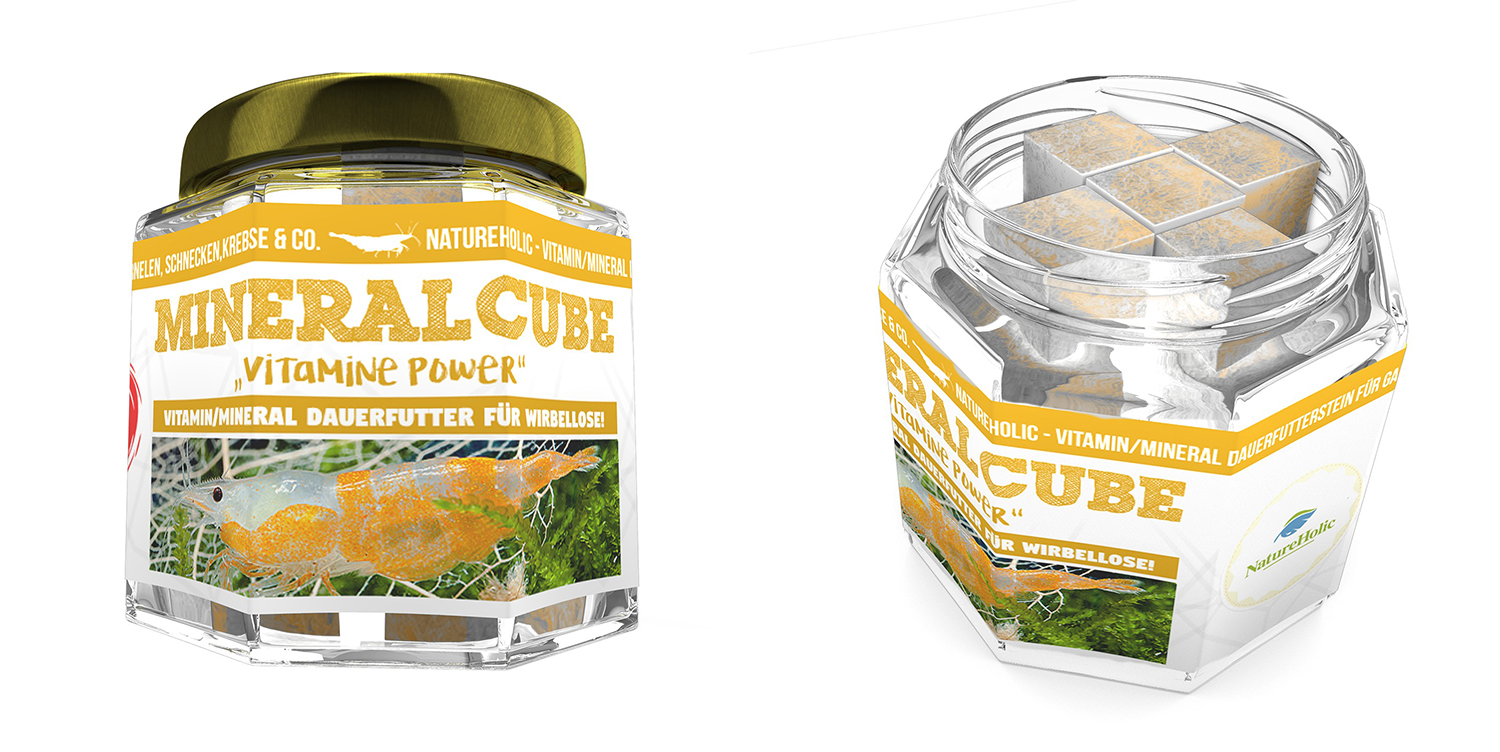
The innovative mineral cubes are easy to use, do not pollute the water and supply shrimps, crayfish, crabs and snails not only with vital minerals and vitamins, but also represent an ideal permanent supply. No matter whether they are on vacation, on a business trip or in hospital ... the animals still need their food, and with the MineralCubes "Vitamine Power" you can ensure that they are supplied with everything they need.
Expert tips for molting:
- Leave exuviae in the tank, they are a valuable mineral supplement
- If body parts like legs or claws are stuck in the exuvia, this is an indication of mineral deficiency
- If the exuviae are crumbly, this is also a sign of a suboptimal mineral supply.
- Before and after molting, sufficient animal-friendly hiding places should be provided.

